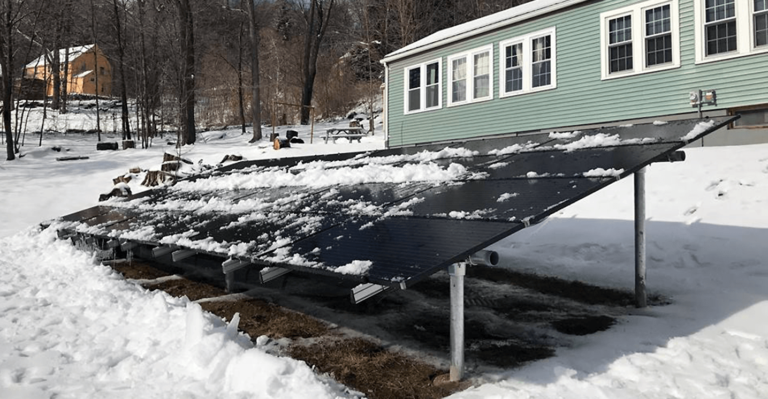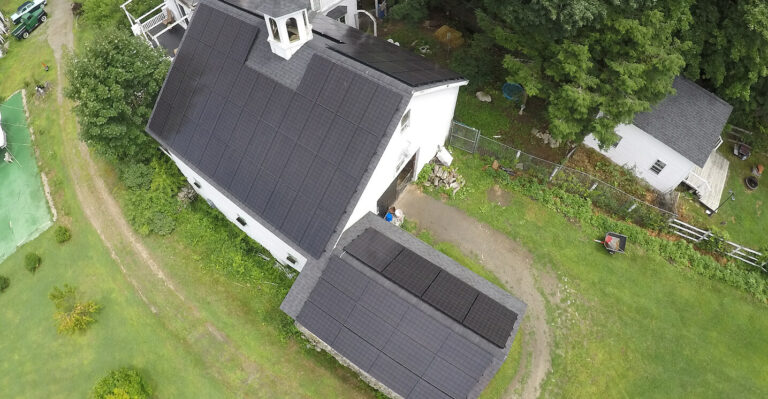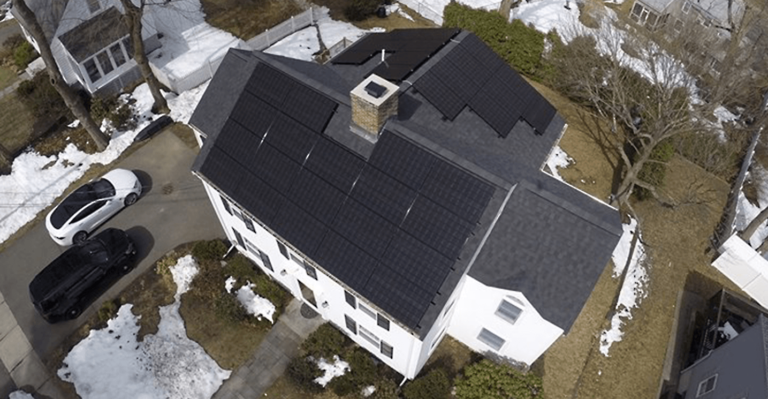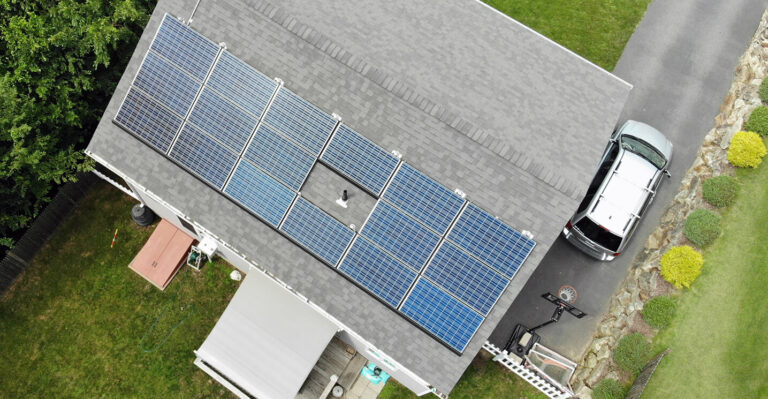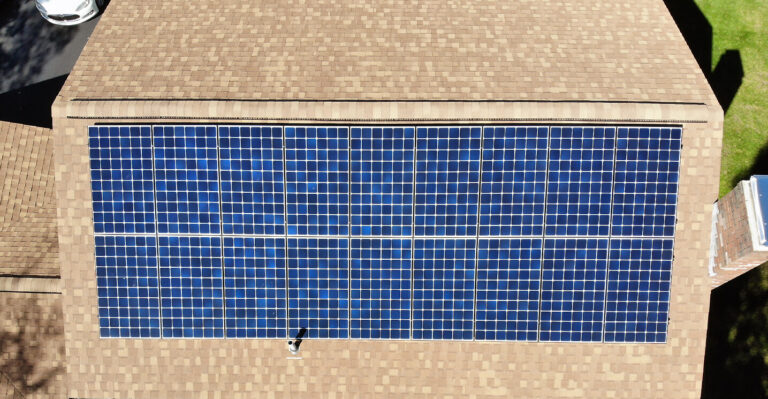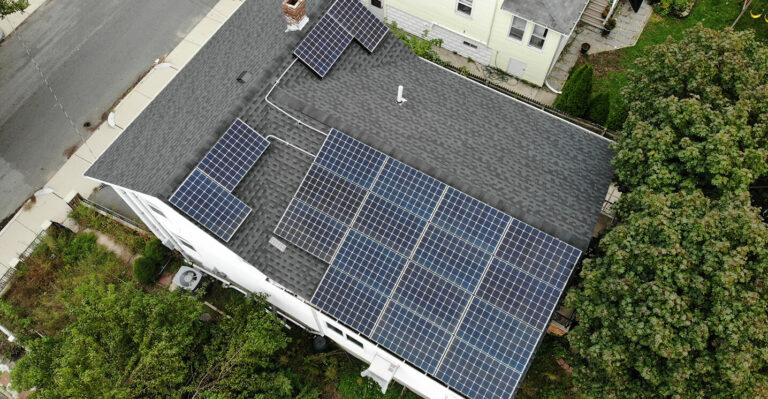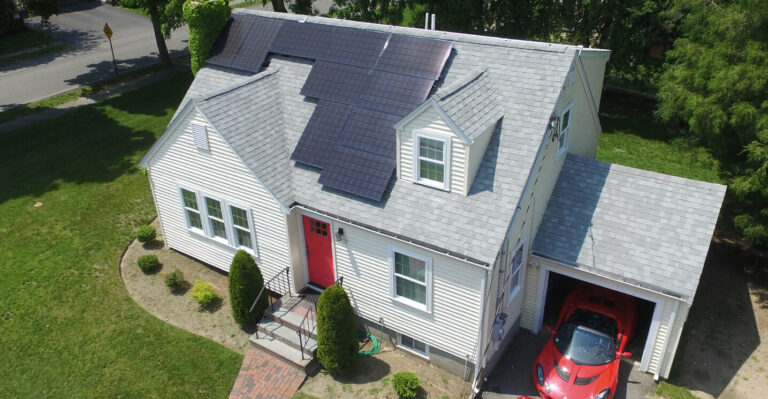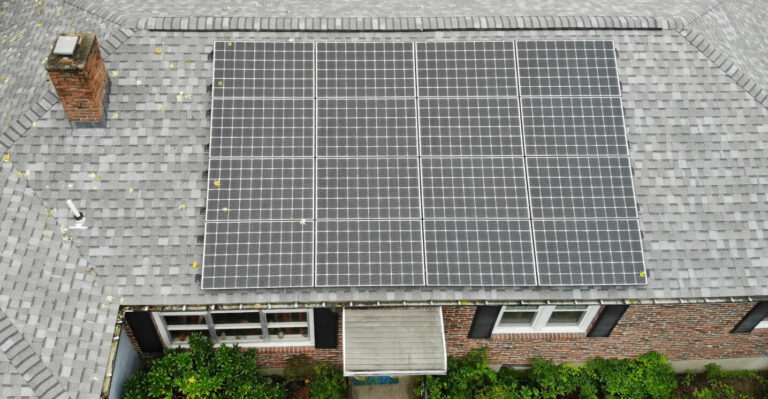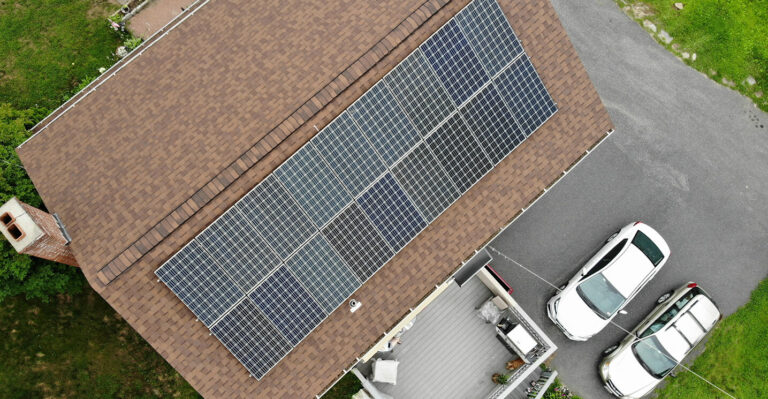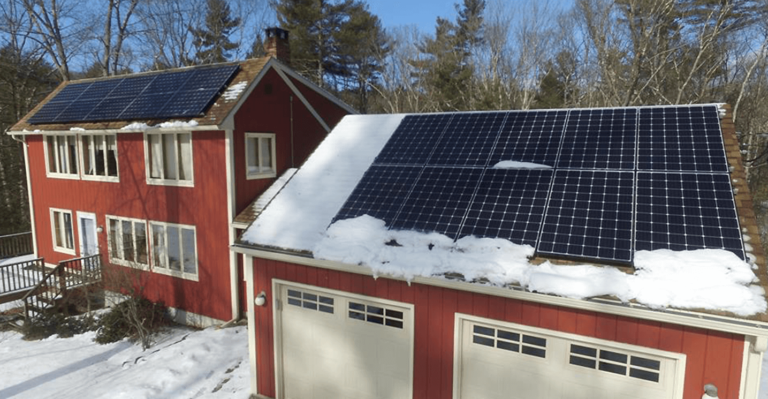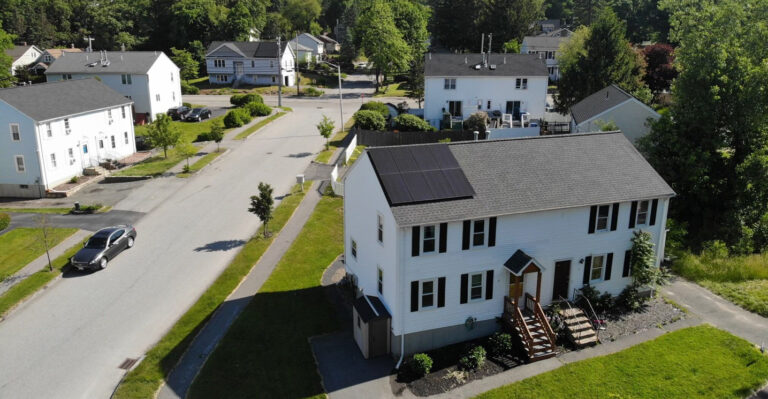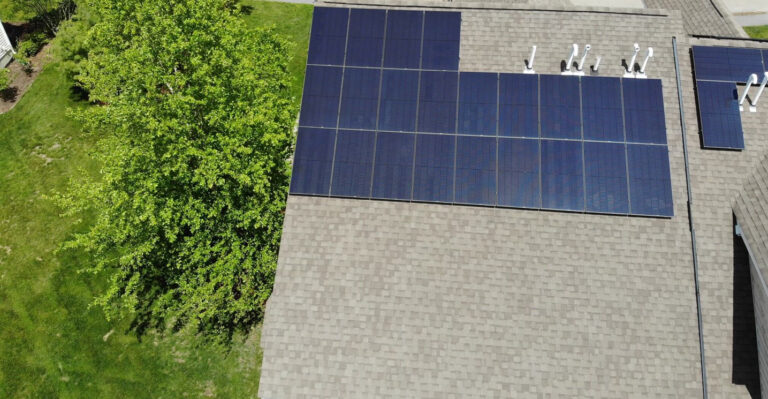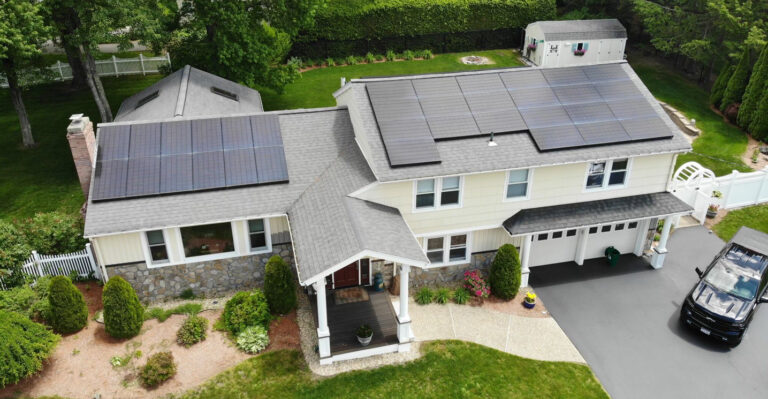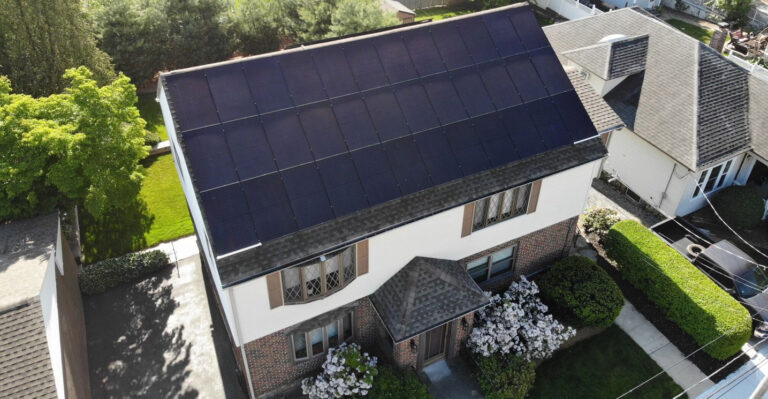The Time for Solar is now!
The time for solar is now!
Going Solar in Massachusetts is Easy!
Have you noticed an increase in solar panels on your neighbors’ roofs? Solar is becoming more and more popular in Massachusetts, and for good reason. Are you considering going solar? Are you wondering how it works, if it’s right for you, or how much you could save? Learn about the benefits of going solar—and how Wattson makes the process easy.

How do I go solar in Massachusetts?
Whether you’re looking to reduce your impact on the environment at home or save on utility costs for your commercial building, Wattson Home Solutions makes your solar installation easy!
Residential Solar Power
Going solar in Massachusetts is an excellent home energy solution, which is why it’s been growing in popularity over the years. Installing solar panels on your home doesn’t just decrease energy use; it also increases your home’s value and can save you on utility costs! And with state and federal incentives for homeowners, now is the best time to go solar.
Commercial Solar Power
Saving energy isn’t just for homes! Installing solar panels onto your commercial building will help you better manage your energy in an affordable way. Benefits of commercial solar panels include:
- Better management of energy expenses
- Lowered cost of operations
- Meeting (or exceeding!) sustainability goals
Why go solar?
As one of the Top 100 American Residential Solar Installers in 2019, Wattson Home Solutions has installed hundreds of residential and commercial solar solutions. Our team installs only the best-performing solar technologies in the industry, and we’re dedicated to providing our customers with world-class service and support. That’s why we partner with some of the top brand names in the industry, including:
 Wattson’s unique three-step process enables our customers to go solar easily, and to feel empowered to choose the best options for their unique solar applications.
Wattson’s unique three-step process enables our customers to go solar easily, and to feel empowered to choose the best options for their unique solar applications.
Is my home right for solar?
1. Assess
Before you begin picking out panels, the Wattson Home Solutions team will perform a solar assessment. We will take the time to determine whether or not your home or building is a good candidate for solar based on its size, solar orientation, and energy consumption.
At this point, our team will be able to address common concerns that people have about solar, such as:
- Panel style. We use newer panels that offer a sleeker look, so you don’t have to worry about them ruining your home’s style.
- Cost. How much will installation cost? Will you buy outright or finance? Our team will help you to determine the right option for you and can help you find State and Federal incentives to offset the cost.
- Savings Estimate. How much will going solar save you?
Once we have a good idea of your solar needs, our design team will create a customized design solution. The assessment and design are obligation-free, so you can feel confident in getting your solar assessment.
THE PROS AND CONS OF BUYING OUTRIGHT VS. FINANCING SOLAR PANELS
2. Install
Get excited! It’s time to implement. Our team is committed to making this process simple, so we’ll take care of the logistical work: connecting your solar energy system with local utilities and filing for local building permits.
Next comes the installation. Wattson Home Solutions typically spends 1 to 3 days installing the solar system, depending on the size of your roof. Once you have passed a municipal inspection and received approval to energize, you can officially go solar!
3. Save
This is the fun part! You’ll start saving energy right away with your new environmentally-friendly solar-powered building – which means you’ll also start saving money. Financial benefits of going solar include:
- Solar owners can participate in MA’s SMART Program, which pays YOU for your energy produced!
- Tax benefits including a 26% Federal Investment Tax credit
- A Massachusetts state tax credit for up to $1,000
How can I pay for solar panels?
The upfront cost of solar panels may make many homeowners think twice about the investment, but don’t let it stop you! There are plenty of incentives available to help Massachusetts homeowners pay for solar panels, including a federal solar tax credit which allows you to claim 26% of the cost of your panels from your federal taxes.
At Wattson Home Solutions, we want to make it easy and affordable to install solar panels, so we make the process simple. We’ll help you find financing options that you qualify for—and we’ll even fill out the paperwork.
You should also keep in mind that your solar panels are an investment. As soon as they are installed and working, they will begin producing energy for you. You’ll start saving money on energy costs right away, which means that within a few years, they’ll pay for themselves! Which leads us to…
Will solar panels save me money?
The short answer: yes!
Every home is different, which is why Wattson Home Solutions provides all of our customers with a Solar Savings Estimate before they invest in solar panels. The estimate will take into account your home’s fitness for solar panels as well as your energy usage. The complete picture will allow us to show you how much you could save on energy costs.
Once you install your panels, you’ll start to see an immediate reduction in your monthly utility bills. Some homeowners see a reduction of hundreds of dollars a month! And if your panels produce more energy than you use, your utility company may offer net metering credits, which could help you offset a future utility bill.
Not only will solar panels help you save on energy costs, but they will also increase the value of your home. Solar is a big investment, but it will start paying off right away.
What about battery storage?
In an area famous for unpredictable weather, it pays to be prepared. Stay one step ahead of stormy weather and power outages with solar battery storage.
WHAT IS SOLAR BATTERY STORAGE?
Solar panels for your home are a great way to save energy—and lower your energy costs while you’re at it! But believe it or not, it’s possible for solar panels to generate more power than you use in a single billing cycle. So what happens to that unused energy?
In some cases, the excess energy generated by your solar panels will simply enter the grid. Your utility company may even compensate you by “buying” the energy. Similarly, if your solar panels are not producing enough energy, you can draw from the grid (but you’ll have to pay for that energy!).
HOW IT WORKS
Solar batteries work differently. Instead of feeding your excess energy back into the grid, connecting a battery to your solar system allows you to store your energy for later use. Solar panels generate the most energy during the day and most homes typically consume more energy at night, although the exact amount of energy you produce and use will depend on the season. With solar battery storage, you can charge the battery while the sun is out; when the sun sets, you can turn your battery on to continue your renewable energy use.
But the advantages of solar batteries don’t stop there. Solar battery storage can even help you in the event of a power outage. As long as the battery has energy stored, it will turn on automatically when the grid goes out—which means no more worrying about frozen pipes, spoiled food, or missing your favorite TV show in the event of a blackout!

Wattson Home Solutions offers two different brands of battery for our customers to choose from:

![]()
Though there is some variation between the two, both brands create high-quality solar battery systems. We will work with you to determine the best battery option for your home.
Yes, both the solar panel system and the battery will be connected to the internet. This will provide you with the ability to monitor your solar system and your battery storage with an app on your mobile phone.
This will be different for every customer. There are many variables that will affect this decision, including:
- Your home’s energy consumption
- The time of day when energy is most often consumed
- Solar system production (based on the size and type of panel)
- How the battery system will be used
What kind of solar panels do I need?
Let’s face it: solar panels are extremely useful, but they haven’t always been pretty. One of the most common objections to going solar that we hear from our customers is that solar technology can look clunky!
We care about the aesthetics of your home and your panels, which is why we don’t work with old, outdated technology. Wattson Home Solutions has a wide selection of all black modules, designed to look sleek and stylish, that fit in with your home’s exterior without looking like an eyesore!
Want to learn more about a typical solar panel installation experience with Wattson Home Solutions? Download our free case study to learn how we helped a Massachusetts homeowner find a solar solution that fit his home and helped him save money on energy costs.
Most people know that solar energy is great for the environment and saves serious money on your energy bills. However, few people understand exactly how the sun’s rays can actually power their home. Solar rays are converted into usable energy in the fairly simple process outlined below.
1. It All Begins with the Sun.
Sunlight falls on your home’s energy panels. The solar panels convert the sun’s energy into Direct Current electricity which is sent to an inverter.
2. The Energy is Made Usable.
The inverter “conditions” the power by converting the Direct Current into Alternating Current electricity. Alternating Current energy is what’s used to power your house or return to the energy grid.
3. Excess Energy Charges Batteries and Runs Your Meter Back.
Solar energy systems often produce more electricity than is needed during peak sun hours. When this occurs, the excess energy charges up your homes energy storage system (if equipped with batteries) and is then automatically sent to the utility company, running your meter backwards.
4. Utility power helps demand meet supply.
Utility power is provided at night and during the day when demand exceeds solar production. Since your meter has run backwards, the energy you use at off-peak hours can keep your net usage at zero.

Additional Solar FAQs
Whether or not solar panels will work on your home depends on the amount of shade present and the direction in which they are installed. To get optimal performance from your solar panels, they should be installed facing somewhere between a southeast and southwest direction. You will also want to ensure that there is little to no shade on your solar panels between 9 AM and 3 PM, when the sun’s rays are strongest. When our solar experts visit your home, they will conduct a “shade analysis” to determine the amount of shade present on your roof.
Additional expenses to consider when going solar include landscaping (if mounted on the ground) and potential roof replacement costs. Trimming several trees can help minimize the shade present on your panels, maximizing their efficiency. If your roof has less than 5 years of life left, we recommend replacing it before you install your solar panel system. Because solar systems have a lifespan of at least 25 years, it’s best to start with a newer roof.
The average system size is 5 to 6kW (5,000 to 6,000w). Our solar experts will determine the size of your system based on your roof size and the amount of energy your home typically consumes.
A good rule of thumb is that 2kW of PV capacity can be installed in 100 square feet. To support the average system size, you would need 300 to 400 square feet on your roof.
The typical payback period for most homeowners is between 4 and 7 years.
If the problem is caused by a natural disaster; such as strong winds knocking over a tree, your homeowners’ insurance will pay Wattson Home Solutions to replace the damaged panels. If there is a defect with a panel or supporting equipment Wattson Home Solutions will cover the malfunctioning item(s) under our 20 year “bumper to bumper” warranty that comes with all new solar installs.
The amount you can earn in SMART Tariff payments varies by system size. The larger the system size the more you can expect to receive in payments.
The average lifespan of a roof varies based on the materials it’s made from. Generally asphalt roofs, which are the most common roofing materials in New England, last between 15 and 25 years. If your roof needs to be replaced within the next 5 years, you should hold off on going solar until you get a new roof. This will ensure that your roof is structurally sound to support the weight of the panels and prevent the added cost of reinstalling panels when you replace your roof. Wattson Home Solutions can also help you finance a new roof with a solar system at the same time!
Sungage Financial ’s Solar loans only apply to homeowners who plan on owning their solar system.
Yes! We’re an approved Home Performance Contractor for Massachusetts. That means that we’re not only qualified at what we do, but we’re able to offer you Rebates of up to 75% off of your project. Learn more about available rebates.
Paying back your loan is as quick and easy as the loan application process. A few weeks after your solar system is up and running, you’ll begin to make fixed monthly payments on your loan. When tax season rolls around, Sungage Financial will remind you to file for any tax credits.
You can prepay your loan without worrying about a penalty fee.
Not quite. Sungage Financial partners with various banks to connect homeowners with financing to make owning solar panels more affordable.
Sungage Financial offers several financing terms and plans that result in lower monthly payments and long-term savings. They will work with you to create a financing plan that maximizes your savings opportunities, including tax credits and incentives.
Your energy bill savings can virtually finance the cost of installing your solar panel system. To get a better estimate of your potential energy savings, contact a Wattson Home Solutions adviser and request a Solar Savings Plan. The plan can give you an estimate for both immediate and long-term savings.
View Our Solar Installations
